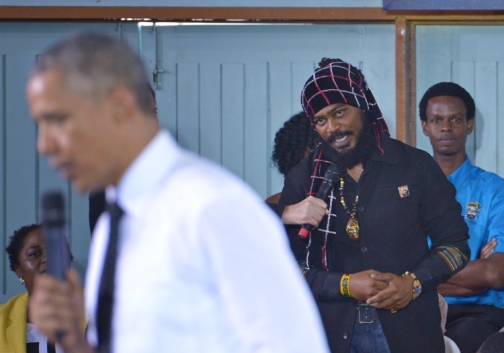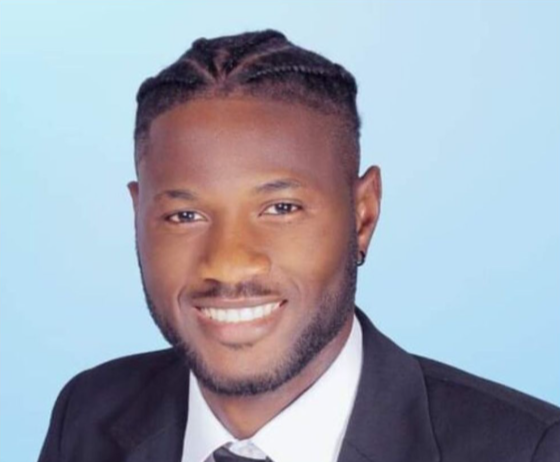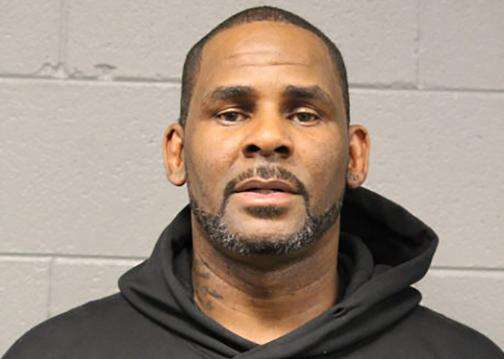Miguel ‘Steppa’ Williams (right) asks US President Barack Obama about decriminalising marijuana during a town hall meeting with young leaders at the University of the West Indies on Thursday. (Photo: AFP)
KINGSTON, Jamaica — President of the United States Barack Obama says the process of legalising and decriminalising marijuana is not a silver bullet.
Obama was addressing young leaders at a forum at the University of the West Indies, Mona Campus this afternoon.
Questioned by Miguel ‘Steppa’ Williams, one of the participants, on the issue of decriminalising and legalising marijuana in Jamaica, Obama made three points.
He said, “…The so called war on drugs has been so heavy in emphasising incarceration that it has been counterproductive. You have young people who did not engage in violence who get very long penalties and are placed in prison and then are rendered economically unemployable or almost pushed into the underground economy and learn crime more effectively in prison.”
The US president said as a result of this families are devastated, citing that what needs to be done is to reform criminal justice systems.
He said there has been the second issue of legalising marijuana, whether it is for medicinal purposes or recreational use.
“There are two states in the United States that have embarked on an experiment to decriminalise or legalise marijuana, Colorado and Washington states, and we will see how that experiment works its way through the process,” Obama said.
“Right now that is not federal policy and I do not foresee, anytime soon, Congress changing the law on a national basis, but I do think that if there are states that show that they are not suddenly a magnet for additional crime, that they have a strong enough public health infrastructure to push against the potential of increased addiction then it’s conceivable that that will spur on a national debate, but that is going to be some time off,” he added.
Obama said the third issue is what will US international policy be?
He reasoned: “We had some discussion with the Caricom countries about this. I know on paper a lot of folks think, you know, what if we just legalise marijuana then it’ll reduce the money flowing into the transnational drug trade, there are more revenues and jobs created.
“I have to tell you that it’s not a silver bullet because, first of all, if you are legalising marijuana, how do you deal with other drugs and how do you draw the line.” He cautioned that in the global economy, generally, if you have small or medium sized marijuana businesses scattered across the Caribbean and marijuana is suddenly legal, big multinational companies will come in and try to market and control and profit from the trade. He stressed that this is a real scenario.
“I think we have to have a conversation about this but our current policy continues to be, in the United States, we need to decrease demand and we need to focus on a public health approach to decreasing demand and to stop the flow of guns and cash into the Caribbean and Central America and Latin America,” Obama said. “I think the Caribbean and Latin America to Central America have to cooperate with us to try to shrink the power of the transnational drug organisations that are vicious and hugely disruptive,” he added.
The amendment to the Dangerous Drugs Act was passed in the House of Representatives in February.
Under this act small amounts of marijuana have been decriminalised.
Kimone Francis










